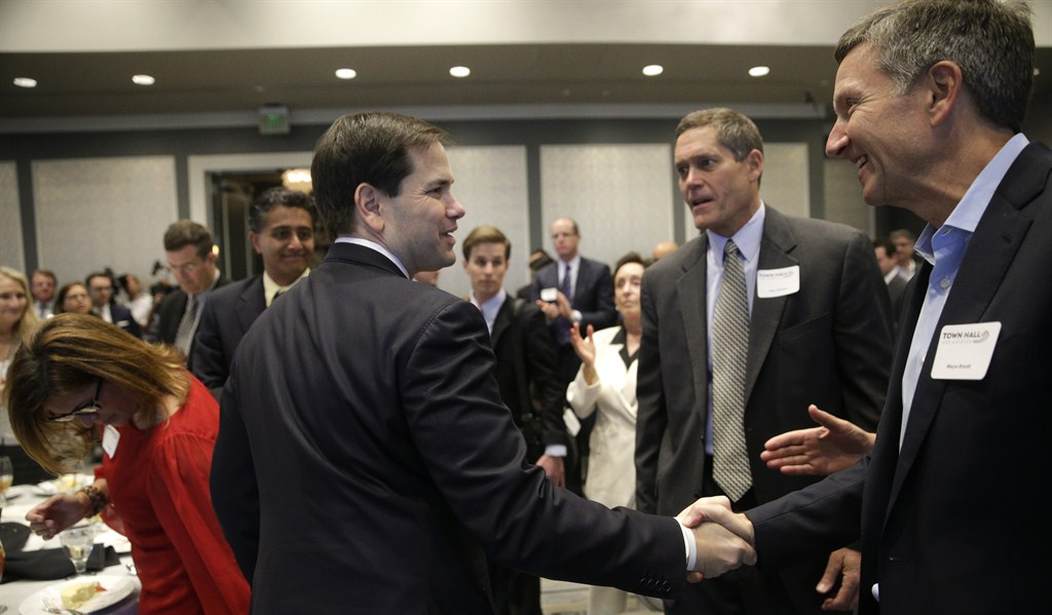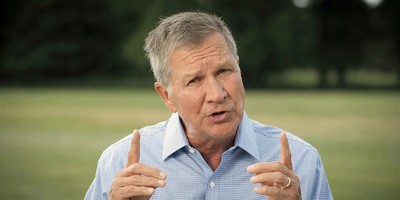As Guy wrote last week, there was no clear GOP frontrunner WMUR/UNH poll–and the Bloomberg Politics poll didn’t do much to dispel that point. Sen. Rand Paul (R-KY), Wisconsin Gov. Scott Walker, former Florida Gov. Jeb Bush, and Sen. Marco Rubio (R-FL) lead the pack in New Hampshire, with Donald Trump coming in at fifth place, New Jersey Gov. Chris Christie at sixth, and conservative stalwart Sen. Ted Cruz (R-TX) coming in at seventh place. Nevertheless, Rubio, Bush, and Paul are the candidates that fare best against Hillary at present (via Bloomberg):

The poll, conducted May 2-6 by Washington-based Purple Insights, shows Bush and Rubio as Clinton's closest competitors in potential head-to-head contests. Both trail her by 2 percentage points. Paul is next, 3 percentage points behind her, followed by Walker, who trails Clinton by 6 points.…
Part of Paul's strength is his ability to attract independent voters, a key group especially in New Hampshire, where they can vote in partisan primaries. He's supported by 18 percent of independents who said they were likely to vote in the Republican primary, easily the most of anyone in the field. That means he's going to want to see the state's Democratic primary remain a lopsided affair, prompting independents to stick with the action on the Republican side and continue to support him.
Bush is relatively weak among independents. While drawing support from 15 percent of Republicans, he has the backing of just 6 percent of independents. That's a potential problem for Bush, especially if he runs poorly in the Iowa caucuses set for the week before New Hampshire's primary. A Quinnipiac University poll released last week showed Bush in 7th place in Iowa, so he might need a top finish in New Hampshire to rebound.
…
The poll shows gender differences developing among likely Republican primary voters. Paul does twice as well among men as he does among women, while Rubio does slightly better with women than men. Walker also does slightly better among men. Bush performed equally well among both genders.
Recommended




Bloomberg noted that Rubio’s support has surged since his 2016 announcement on April 13, while Bush’s support has dropped five points; he’s expected to formally announce in June. Nevertheless, it will all come down to money in the early voting states. GOP strategists say the top-tier candidates will have to raise at least $75 million to get through the first three primary states, and it wouldn't shock me if the top three of four candidates we have in this poll are the ones who can tread water and survive. Still, the Tea Party, moderate, conservatarian, and libertarian wings of the party are still going to have a serious candidate representing them.
The base of the poll sample was 500, with 400 Republican and Democratic primary voters for the oversample.























Join the conversation as a VIP Member